Inside Québec – July 2008
by Maurie Alioff – Québec Correspondent
Cruise Control
Back in 1989, when opening weekends and other box-office markers were off the radar of most Canadian and Québécois filmmakers, Robert Ménard’s Cruising Bar earned almost $4 million in Quebec alone and sold to 20 countries. The ingeniously designed comedy was an unapologetic crowd-pleaser that showed the way for producers of bigger hits like the Les Boys franchise and Bon Cop Bad Cop.Cruising Bar, just released on DVD, and its brand new sequel, Cruising Bar 2, are driven by Michel Côté’s shapeshifting portrayal of all the film’s main characters. Perhaps inspired by the multiple role performances of virtuosos like Peter Sellers and Alec Guinness, Côté dreamt up the idea of a slapsticky, yet character-oriented film in which one actor plays assorted cartoons of male sexuality. CB 1 follows a night in the lives of four horny 30-somethings desperately seeking hookups; CB2, co-directed by Menard and Côté, picks up the quartet 20 years later.
With 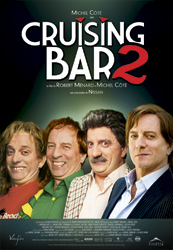 seemingly effortless control, Côté alters body language, physiognomy, and vocal inflections as the two movies crosscut between a fat adulterous suburbanite, a svelte yuppie, a long-haired, snaggle-toothed goofball, and a pathetic schlemeil.
seemingly effortless control, Côté alters body language, physiognomy, and vocal inflections as the two movies crosscut between a fat adulterous suburbanite, a svelte yuppie, a long-haired, snaggle-toothed goofball, and a pathetic schlemeil.
In Cruising Bar 2, the cutely nicknamed Gérard the Bull, Jean-Jacques the Peacock, Patrice the Lion, and Serge the Earthworm are faced by mid-life catastrophes. The Bull suffers erectile dysfunction when his wife (Véronique Le Flaguais), fed up with his seedy infidelities, kicks him out of the house. The impeccably groomed, narcissistic Peacock, unable to satisfy his sterile GQ magazine idea of romance, discovers that he might be gay. Meanwhile, The Lion loses his girlfriend and screws up his job as a movie stuntman, just as the lonely Earthworm goes online in a desperate bid to find his dream woman. The movie climaxes with the foursome back on the bar scene, a contemporary one that they don’t really grasp, hoping to find the someone who will ease them out of their troubles.Depicting issues like rejection and humiliation with broad comedy, CB 2 rattles along, a mix of farcical situations, gross-outs, and sight gags. For instance, in a moment recalling comedy master Jacques Tati’s visual humour, the moustachioed Bull’s rotund body sticks out of a tiny red convertible as he zooms home to woo back his wife. When the picture goes satirical, it spoofs 21st century fixations like cell phones and bottled water. And CB 2 might be the first movie ever to feature a slapstick prostate examination. Eventually, the film loses traction during its long and repetitive cruising sequence. When the movie cuts back to The Peacock in yet another gay theme bar, you start getting restless. Nevertheless, it is the film event of the summer, earning $2 million during its first two weeks in theatres.
Distributor Alliance Vivafilm is signalling CB 2s special status by making it the first Quebec release to play in a D-Cinéma, or digital version, on three of 120 screens across Quebec. Moreover, in advance of the film’s June 27 launch, its amusing four minute introduction of Gérard, Jean-Jacques, Patrice, and Serge played Facebook, while Sur le plateau de Cruising Bar 2, a doc look at the picture, aired on Radio-Canada.
Mountain Views
The summer film festival season kicked off with the third edition of a small-scale event in Mount Tremblant, an upmarket resort town in the Laurentian Mountains. From June 18 to 22nd, the Tremblant Film Festival screened 28 features from Quebec, Canada, and other countries, not to mention shorts and children’s films. A program of bucolic outdoor projections highlighted recent Quebec releases like Léa  Pool’s Maman est chez le coiffeur and revivals like Claude Lelouch’s A Man and a Woman (1966), the French New Wave director’s ecstatic celebration of romantic passion, the samba, and Mustang convertibles. No heavy-duty deal making up in the mountains, just relaxed schmoozing and viewing.A modestly competitive festival, Tremblant’s jury was headed by French director Gérard Krawczyk (Taxi) and included Québécoise moviemaker Lynne Charlebois (Borderline) and French star Laurent Lucas (With a Friend Like Harry, the hilariously excruciating Calvaire). This “professional” jury, as opposed to a second one composed of Tremblant residents, deemed French actor-director Jalil Lespert’s 24 Bars, an ensemble piece with a jazz-like structure, the fest’s best picture.
Pool’s Maman est chez le coiffeur and revivals like Claude Lelouch’s A Man and a Woman (1966), the French New Wave director’s ecstatic celebration of romantic passion, the samba, and Mustang convertibles. No heavy-duty deal making up in the mountains, just relaxed schmoozing and viewing.A modestly competitive festival, Tremblant’s jury was headed by French director Gérard Krawczyk (Taxi) and included Québécoise moviemaker Lynne Charlebois (Borderline) and French star Laurent Lucas (With a Friend Like Harry, the hilariously excruciating Calvaire). This “professional” jury, as opposed to a second one composed of Tremblant residents, deemed French actor-director Jalil Lespert’s 24 Bars, an ensemble piece with a jazz-like structure, the fest’s best picture.
Return of the Living FanTasia
Since it was co-founded in 1996 by Pierre Corbeil, president of the top post-production house, Vision Globale, FanTasia has grown into one of the top genre film festivals in the world. A communal ritual for the cinephiles, fanboys, and gore hounds who pack its screenings, the event runs for a mind-boggling three weeks. The devoted audience cheers, laughs uproariously, and hushes down whenever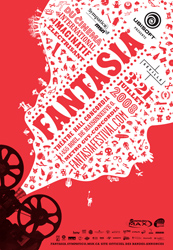 there’s real art on the screen. FanTasia introduced modern Asian cinema, and directors like Johnnie To and Takeshi Miike, to North America long before Hollywood kicked off its remakes of hits like Ringu.This year, the festival programmed its usual mash of American, Spanish, and Thai horror; Hong Kong crime pictures, Japanese extravaganzas, Korean dream films, and out there comedies and documentaries. The movies screen in sections like Bloody Radical-Unconventional American Horror, Animated Auteur Visions, Documentaries from the Edge, From Manga to Cinema, Strange Loves, and so on. Among the many guests FanTasia invited to Montreal, kung fu icon Gordon Liu, Uma Thurman’s demanding teacher in Kill Bill, was anticipated with the kind of excitement that would herald a Second Coming. Liu agreed to host a special presentation of his 1984 epic, Disciples of the 36th Chamber.Of the more than 100 films on Fantasia’s program Jaume Balagueró and Paco Plaza’s [REC], in which a TV crew videos a horrifying zombie attack, is a Spanish-made take on the current reality horror trend. Meanwhile, Christopher Denham’s Home Movie captures the terror of parents whose videos uncover evil in their children, and the world- premiering Midnight Meat Train is Ryuhei Kitamura’s adaptation of Clive Barker’s short story, once thought to be unfilmable. For Mitch Davis, Fantasia’s co-director of international programming and highly visible, beating soul of the festival, Home Movie “hearkens back to the seventies style of horror movies that were critiquing the family structure, really going into the power struggles.”FanTasia adepts were also eagerly looking forward to Daniel Myrick’s The Objective, which has the director of The Blair Witch Project finding enigmatic horrors in war-torn Afghanistan; cult director Frank Henelotter’s Bad Biology; Italian horror master Dario Argento’s The Mother of Tears; Johnnie To’s film about pickpockets, The Sparrow; and Japanese madman Takashi Miike’s spaghetti
there’s real art on the screen. FanTasia introduced modern Asian cinema, and directors like Johnnie To and Takeshi Miike, to North America long before Hollywood kicked off its remakes of hits like Ringu.This year, the festival programmed its usual mash of American, Spanish, and Thai horror; Hong Kong crime pictures, Japanese extravaganzas, Korean dream films, and out there comedies and documentaries. The movies screen in sections like Bloody Radical-Unconventional American Horror, Animated Auteur Visions, Documentaries from the Edge, From Manga to Cinema, Strange Loves, and so on. Among the many guests FanTasia invited to Montreal, kung fu icon Gordon Liu, Uma Thurman’s demanding teacher in Kill Bill, was anticipated with the kind of excitement that would herald a Second Coming. Liu agreed to host a special presentation of his 1984 epic, Disciples of the 36th Chamber.Of the more than 100 films on Fantasia’s program Jaume Balagueró and Paco Plaza’s [REC], in which a TV crew videos a horrifying zombie attack, is a Spanish-made take on the current reality horror trend. Meanwhile, Christopher Denham’s Home Movie captures the terror of parents whose videos uncover evil in their children, and the world- premiering Midnight Meat Train is Ryuhei Kitamura’s adaptation of Clive Barker’s short story, once thought to be unfilmable. For Mitch Davis, Fantasia’s co-director of international programming and highly visible, beating soul of the festival, Home Movie “hearkens back to the seventies style of horror movies that were critiquing the family structure, really going into the power struggles.”FanTasia adepts were also eagerly looking forward to Daniel Myrick’s The Objective, which has the director of The Blair Witch Project finding enigmatic horrors in war-torn Afghanistan; cult director Frank Henelotter’s Bad Biology; Italian horror master Dario Argento’s The Mother of Tears; Johnnie To’s film about pickpockets, The Sparrow; and Japanese madman Takashi Miike’s spaghetti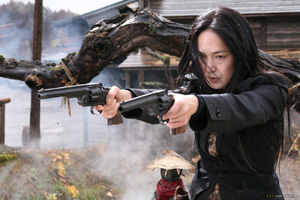 western, Sukiyaki Western Django, a crazed spectacle in which Japanese actors speak phonetic English and Quentin Tarantino does a cameo. Supportive of Canadian and Quebec moviemakinng, FanTasia’s homegrown choices included the fest’s opener, Kim Nguyen’s Truffe, an anti-overconsumption dream film about black truffles suddenly proliferating in a Montreal working class neighbourhood, as well as Jon Knautz’s horror comedy, Jack Brooks, Monster Slayer. And for the first time FanTasia scheduled a weekend of Quebec Shorts, practically a festival in itself.
western, Sukiyaki Western Django, a crazed spectacle in which Japanese actors speak phonetic English and Quentin Tarantino does a cameo. Supportive of Canadian and Quebec moviemakinng, FanTasia’s homegrown choices included the fest’s opener, Kim Nguyen’s Truffe, an anti-overconsumption dream film about black truffles suddenly proliferating in a Montreal working class neighbourhood, as well as Jon Knautz’s horror comedy, Jack Brooks, Monster Slayer. And for the first time FanTasia scheduled a weekend of Quebec Shorts, practically a festival in itself.
Giggling in the Dark
Overlapping with FanTasia, and also in its 12th year, the Just for Laughs Film Festival is the gigantic humour event’s movie offering. Known until this year by the somewhat arcane designation “Comedia,” the JFLFF screens features, runs special events, and hosts guests like current comedy king, producer-director-writer Juddd Apatow. The fest’s popular short films are chosen by Montreal’s globetrotting cour métrage guru, Danny Lennon, who assembles his picks (more than 125 from 16 countries) into two packages: Eat My Shorts and the sometimes jaw-droopingly naughty Eat My Twisted Shorts.As for the features, programmers came up with a slate that includes titles like the French hits Astérix et les jeux olympiques (the opening film) and Bienvenue chez les Ch’tis (the closer). The Apatow-produced Pineapple Express is a stoner action comedy while two Canadian made pictures go dark. Chaz Thorne’s Just Buried zeroes in a couple (Jay Baruchel and Rose Byrne), who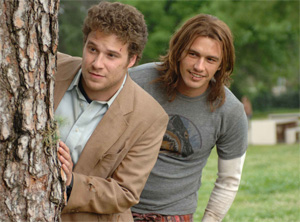 embark on a murder spree to supply corpses for their failing funeral parlour. Duncan Christie’s Confessions of a Porn Addict is a mockumentary with Spencer Rice (Kenny vs. Spenny) as a successful married man who just can’t get enough cum shots.Just for Laughs’ chief operating officer Bruce Hills is delighted by his movie component’s growth spurt in quantity and quality. During an interview, its producer Paul Ronca told me that 2008 is a banner year for appearances by top comedy film names like Judd Apatow (Superbad, Knocked Up, 40-Year-Old Virgin), Seth Rogen (Knocked Up), Ivan Reitman (Ghostbusters), Jason Reitman (Juno) and Dany Boon, whose Bienvenue chez les Ch’tis is the highest grossing French film ever made.Showdown at the CRTCLike poker pros in a high stakes game, they sized each other up. It was early June, and Maxime Rémillard, who with his brother Julien runs movie production and distribution company Remstar, faced CRTC chairman Konrad von Finckenstein. The Rémillards, who for some reason want to expand into television, had announced that if they took over collapsing TV network TQS (Télévision Quatre-Saisons), they would wipe out news coverage, thereby breaching the federal agency’s broadcast regulations. The Quebec media, unions, and
embark on a murder spree to supply corpses for their failing funeral parlour. Duncan Christie’s Confessions of a Porn Addict is a mockumentary with Spencer Rice (Kenny vs. Spenny) as a successful married man who just can’t get enough cum shots.Just for Laughs’ chief operating officer Bruce Hills is delighted by his movie component’s growth spurt in quantity and quality. During an interview, its producer Paul Ronca told me that 2008 is a banner year for appearances by top comedy film names like Judd Apatow (Superbad, Knocked Up, 40-Year-Old Virgin), Seth Rogen (Knocked Up), Ivan Reitman (Ghostbusters), Jason Reitman (Juno) and Dany Boon, whose Bienvenue chez les Ch’tis is the highest grossing French film ever made.Showdown at the CRTCLike poker pros in a high stakes game, they sized each other up. It was early June, and Maxime Rémillard, who with his brother Julien runs movie production and distribution company Remstar, faced CRTC chairman Konrad von Finckenstein. The Rémillards, who for some reason want to expand into television, had announced that if they took over collapsing TV network TQS (Télévision Quatre-Saisons), they would wipe out news coverage, thereby breaching the federal agency’s broadcast regulations. The Quebec media, unions, and  politicians were not happy with the plan, nor was the no-nonsense von Finckenstein. Not only did he want to see a “Plan B” later in June, he insisted on checking out the Rémillards’ business and personal finances.Von Finckenstein dealt a tough hand, but the brothers knew they had aces up their sleeves. TQS was haemorrhaging millions, and if the Rémillards didn’t rescue it, a major TV outlet would sink, dragging its employees into EI. So by the end of June, Remstar had not really backed off. Instead of deploying conventional news gathering and reporting, they proposed that TQS would handle current affairs in interactive “discussion” programs. Some commentators imagined something like Lou Dobbs nightly CNN show, but the Rémillards might be envisioning a shock jock approach that could attract the young demographic they hanker after.Von Finckenstein blinked and okayed Remstar’s application with a proviso of what the CRTC terms “strict conditions,” the main one being that TQS content will be reviewed in three years. The chairman wants to give the network a chance to renew itself, but CRTC commissioner Michel Morin offered a dissenting opinion, arguing that the decision sets an unhealthy precedent.Trickle DownEven before the threat of an actors’ strike in the U.S., the big shows stopped coming to town. Following high-profile American productions like Get Smart, The
politicians were not happy with the plan, nor was the no-nonsense von Finckenstein. Not only did he want to see a “Plan B” later in June, he insisted on checking out the Rémillards’ business and personal finances.Von Finckenstein dealt a tough hand, but the brothers knew they had aces up their sleeves. TQS was haemorrhaging millions, and if the Rémillards didn’t rescue it, a major TV outlet would sink, dragging its employees into EI. So by the end of June, Remstar had not really backed off. Instead of deploying conventional news gathering and reporting, they proposed that TQS would handle current affairs in interactive “discussion” programs. Some commentators imagined something like Lou Dobbs nightly CNN show, but the Rémillards might be envisioning a shock jock approach that could attract the young demographic they hanker after.Von Finckenstein blinked and okayed Remstar’s application with a proviso of what the CRTC terms “strict conditions,” the main one being that TQS content will be reviewed in three years. The chairman wants to give the network a chance to renew itself, but CRTC commissioner Michel Morin offered a dissenting opinion, arguing that the decision sets an unhealthy precedent.Trickle DownEven before the threat of an actors’ strike in the U.S., the big shows stopped coming to town. Following high-profile American productions like Get Smart, The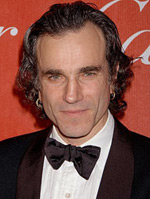 Mummy: Tomb of the Dragon Emperor, and The Curious Case of Benjiman Button, which brought $260 million to Montreal last year, the 2008 slate has dwindled to nada. Earlier in the year, the city lost Roland Emmerich’s latest apocalypse spectacle, 2012, to Vancouver, and Daniel Day-Lewis insisted on relocating Nine, the musical adaptation of Federico Fellini’s 8 1?2, to the UK.Beyond the lost glitz and the fortunes of big players, people like a veteran film worker I spoke to recently are the ones who get hurt most deeply by the slide. He can’t find gigs on local productions because they are being snapped up by crewmembers who normally man lucrative American shoots. Sadly, an Assistant Director he knows is now available for production assistant jobs.
Mummy: Tomb of the Dragon Emperor, and The Curious Case of Benjiman Button, which brought $260 million to Montreal last year, the 2008 slate has dwindled to nada. Earlier in the year, the city lost Roland Emmerich’s latest apocalypse spectacle, 2012, to Vancouver, and Daniel Day-Lewis insisted on relocating Nine, the musical adaptation of Federico Fellini’s 8 1?2, to the UK.Beyond the lost glitz and the fortunes of big players, people like a veteran film worker I spoke to recently are the ones who get hurt most deeply by the slide. He can’t find gigs on local productions because they are being snapped up by crewmembers who normally man lucrative American shoots. Sadly, an Assistant Director he knows is now available for production assistant jobs.
![]() Maurie Alioff is a film journalist, critic, screenwriter and media columnist. He has written for radio and television and taught screenwriting at Montreal’s Vanier College. A former editor for Cinema Canada and Take One, as well as other magazines, he is affiliated with the Quebec media industry publication, CTVM.Info. His articles have appeared in various publications, including Canadian Cinematographer, POV Magazine, and The New York Times. He is the Québec Correspondent for northernstars.ca.
Maurie Alioff is a film journalist, critic, screenwriter and media columnist. He has written for radio and television and taught screenwriting at Montreal’s Vanier College. A former editor for Cinema Canada and Take One, as well as other magazines, he is affiliated with the Quebec media industry publication, CTVM.Info. His articles have appeared in various publications, including Canadian Cinematographer, POV Magazine, and The New York Times. He is the Québec Correspondent for northernstars.ca.


